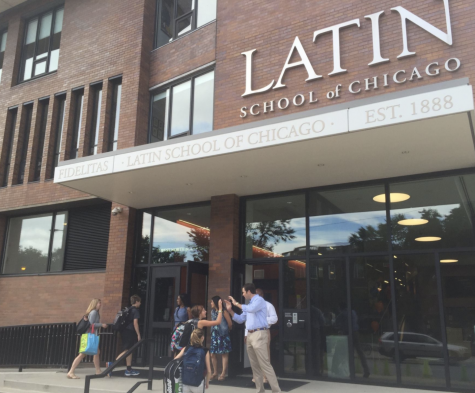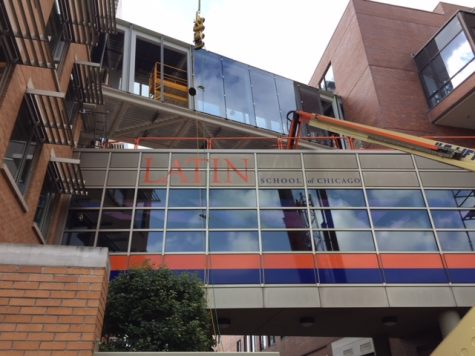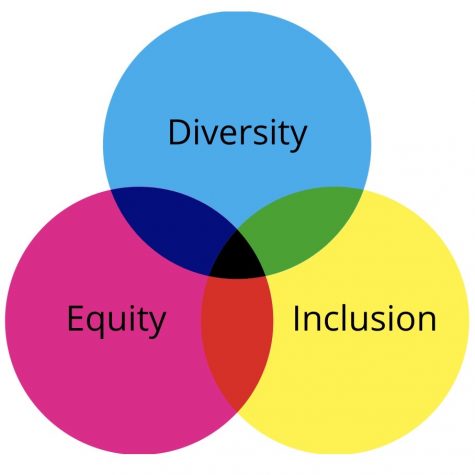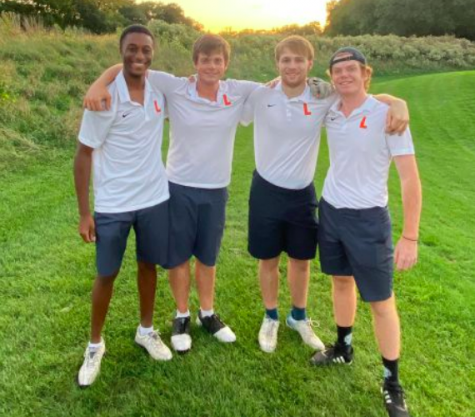Revisiting Latin’s Honor Council: Time for Change
Latin’s Honor Council, established during the 2013-14 school year, strives to be a body of “adults & students imparting concepts of honor to one another,” as is stated in the subtitle of its charter. At least, that seemed to be the intention when said charter was posted to RomanNet in February of 2014—it has remained unedited since the 2017-18 school year. In recent years, the Honor Council has faded to relative obsolescence, but now, at a time when countless instances of bigotry and racism in the Latin community are coming to light, a group dedicated to “imparting concepts of honor” is precisely what Latin needs. And the first step in creating such a body is to assess what goals the Honor Council set out to achieve and where it has since fallen short.
The Honor Council was born with a noble educational mission: “to uphold, communicate, and celebrate the values of Latin’s community through council policy, programming and procedures.” But even in 2014, just one year after the council’s establishment, Latin students claimed it was failing to live up to that mission. In an October 2014 Forum article entitled “Voices of the Forum: Honor Council,” former Editor-in-Chief Frani O’Toole ‘15, wrote that while the Honor Council enforced punishments regularly, it did not focus its attention on much else. “The other two [objectives]—communication about and celebration of Latin’s values—have remained stagnant,” O’Toole said.
Six years later, a lack of communication between the Honor Council and the student body remains an issue, and the celebration of Latin’s values, if occurring, is imperceptible. “I do not remember the Honor Council ever communicating directly with the Latin community,” said rising senior Quin Kies. “There has been a strong sense of isolation between the council and the remaining student body.” This absence of communication has left students uncertain of the Honor Council’s mission, or even of its existence. “I cannot speak with enough understanding of what the Honor Council does beyond academic issues,” said rising senior Freddi Mitchell. “From what I’ve heard, the Honor Council isn’t even a thing anymore.”
Such inactivity on the Honor Council’s part has not only left the student body confused but has also left some council members wishing they could have taken a more involved role. “We met twice during my time on the Honor Council, and they were both introductory ‘welcome’ meetings. I never heard a case,” said recent alumnus Michael Meagher ‘20, who had served on the council since his sophomore year. “People might think there’s some secret stuff going on, but in reality, we were just really quiet,” he added. In fact, according to Mr. Edwards, the Honor Council faculty advisor, there was just one case reported between the 2017-18 school year, when Michael joined, and the 2018-19 school year. Reflecting on his time as a council member, Michael said, “It’s hard to say you enjoyed something when it met once or twice. That’s not to say that I didn’t enjoy it. I enjoyed learning what the council was about in past years, but I didn’t really get to participate in what the council’s all about.”
With the Honor Council hardly active anymore, one wonders what people or groups have assumed its prior roles. According to the 2019-20 Student/Family Handbook, “A student suspected of academic dishonesty is brought before the appropriate dean… Students may be placed on behavioral probation [by their dean] for repeated or egregious violation of school rules… The decision of the dean of students in disciplinary matters is final.” Evidently, the Upper School’s administration team now holds disciplinary responsibilities that were once the Honor Council’s, as the Honor Council clearly no longer “conduct[s] hearings and determine[s] appropriate action if violations of rules regarding behavior, learning or the wellbeing of our school community are in question,” as is stated in the “Honor Council Charge and Duties” section of its charter. And to address student input regarding Latin’s disciplinary practices, during this past year, Mr. Edwards assembled the “Discipline Committee.”
Though based on a Latin Discipline Committee from years ago, one which actively heard cases but had been deemed ineffective by faculty, Mr. Edwards’s Discipline Committee took a more analytical and reflective approach to disciplinary action at Latin. “I convened a working group of 17 students, faculty, and staff to consider discipline at Latin on a much higher level,” said Mr. Edwards about his committee. “We considered four topic areas: history of behavioral concerns at Latin, different models of school discipline, various policies/procedures used by other schools and school districts, and ways that our policies/practices need to conform to other organizations (e.g. IHSA). By the end of the year, we had explored a lot of territory which I will discuss with Mr. Greer, Ms. Horvath, Ms. Hennessy and others this summer as we conduct our annual review of Latin’s policies and procedures.” Clearly, students have maintained an active voice in assessing disciplinary practices at Latin even with the Honor Council inactive.
Looking into Honor Councils of the past, the current state of discipline at Latin, and the Discipline Committee raises an important question: what role would a revamped Honor Council have at Latin anyway, seeing as its prior roles have been taken over? Given the release of the new Incidents of Bias and Sexual Assault Protocols, it seems that the administration team will remain firmly in charge of determining and issuing disciplinary action to offending students for the foreseeable future. And Mr. Edwards’s creation of a Discipline Committee partly composed of students proves that students do have a say in Latin’s disciplinary methodology, albeit a more limited one, seeing as they themselves are no longer determining punishments. However, a modified Honor Council would no longer work in these capacities, instead focusing on the facets of its mission that seemed to go unaddressed years ago: communicating and celebrating Latin’s values. There does appear to be one glaring place where the school could do better sowing the seeds of honor and ethicality: the classroom.
All students are required to take Affective Ed. for one semester each during ninth and tenth grades; the discussion of ethics and integrity has been sparse throughout these courses, and an Honor Council could change that. Mrs. Horvath, who oversees Latin’s Affective Ed. curriculum, said, “The purpose of Affective Ed. is to create space for students to engage in social-emotional learning. Within the Affective Ed curriculum, students, both individually and as a group, reflect upon and discuss topics that impact them in a meaningful way. Utilizing the concepts discussed in Affective Ed, students are given the opportunity to apply what they are learning to our school, city, and world.” Teaching integrity, ethics, and identity should be part of this purpose, and a student-faculty coalition dedicated to embedding these lessons in curricula could see to just that.
As it stands, Latin students have claimed that the Affective Ed. curriculum does not address these issues enough. “We talked about identity in Mr. Edwards’s section [of the course],” said rising sophomore Mirabel Chin, “but not really racial identity, which could be helpful for BIPOC students. Ethics wasn’t talked about, and neither was integrity. Maybe in Affective Ed. classes we could discuss being aware of what you say—like learning and gaining knowledge before you speak—especially during these times.” Furthermore, rising junior Kazi Stanton-Thomas voiced their disapproval of Latin’s tenth grade Affective Ed. curriculum. “This year, Affective Ed. was based around city planning and was meant to represent gentrification. However, the class looked at it through a stripped-down white lens, oversimplifying it and making it less connective to all sets of students,” Kazi said. “Gentrification is a method of not only segregation but systemic inequity, and to give a stripped-down version of it does not give justice to the subject or the actual people impacted by it—typically minorities of many forms. If Latin is to continue teaching gentrification in this manner, they are leading to further prejudice and the continuation of the cycles of oppression.” During my first two years in the Upper School, my Affective Ed. classes rarely discussed the wrongs of academic dishonesty, much less racism, sexism, and homophobia, or at least the conversations that took place around those topics were surface-level and unmemorable, but Honor Council intervention would change this.
This redesigned Honor Council would focus on weaving critical conversations about integrity, ethics, and identity into Latin’s curricula, beginning with mandatory Affective Ed. courses. The council would do so by coordinating classroom discussions with teachers, creating discussion topics and educational material with the help of the Student Diversity and Equity Committee (SDEC) and the Latin Initiative for Ethics (LIFE), and all the while noting the progression of its efforts and adjusting them as needed alongside the Student Academic Board (SAB). Building such conversations into Latin’s required education (and, hopefully, electives soon afterward) would constitute preventative action by hammering these values home sooner rather than waiting for students to misstep and having to drop that same hammer on them later.
The reason for having an Honor Council bring ethics and identity discussion into curricula rather than having LIFE and SDEC do it themselves is simple: the latter two devote their full efforts to crucial yet voluntary extracurricular workshops, workshops that still require their focused attention and would only further benefit the school with the help of the Honor Council. SDEC and LIFE workshops are opt-in events, meaning uninterested students—potentially those who need ethics and equity education most—don’t attend, but perhaps having Honor Council make this a curricular requirement would spur interest. “The two years I have been on SDEC, the turnout has been low, no more than 15 people probably,” said rising senior and SDEC member Zemzem Mohammed when asked about the turnout at workshops. “So if these discussions become required [in curricula], I have no doubt that the turnout would not only be larger but people will contribute because the workshops are designed to start conversation.” Similarly, rising senior and LIFE member Valeria Ceron said, “We work really hard to plan LIFE events and spend a lot of time brainstorming ideas, considering what topics will interest our community the most. However, it’s usually the same students, teachers, and faculty members that decide to join our forums. This is frustrating and makes it hard for Latin to truly uphold its values because those that need to be educated are making a conscious choice to not get educated and are not seeking opportunities for growth. By integrating discussions on ethics as a mandatory component of our curriculum, people will feel more pressure to come. While I believe that forcing people is not always the best way to get them to join these conversations, I think in this case, that pressure is needed.”
One may question: shouldn’t people know right from wrong well before they enter high school? They should, and many do, but the objective of introducing identity and ethics discussion to the mandatory curriculum is not just to ensure these topics are understood by all students but also to make conversations around them more commonplace. Mr. Stroup, who last served as a faculty member on the Honor Council during the 2014-15 school year, said, “The student body as a whole felt discomfort in discussing issues like academic integrity or instances of racism at Latin. As a result, many students felt like they were being shamed any time these topics were brought up.” Six years later, students feel this issue of discomfort must be addressed. “The act of not having a conversation is what leads to so much injustice,” said Kazi, “because so many people never learn the value of human life in diverse backgrounds, so it’s easy to throw those lives away without ever learning from them.”
At a time like this, when Latin’s community members shout calls from the rooftops to confront prejudice within the school, an organization whose purpose is to foster discourse about integrity, ethics, and identity, an Honor Council, is a large step in the right direction. What the Honor Council and the Latin School community at large may find is that waiting until a student goes wrong in order to take disciplinary action rather than confronting such issues at a major root, a lack of exposure to crucial conversations, needn’t be the only way to try and “uphold” the school’s values. Latin’s values, or what they ought to be—diversity, equity, inclusion, identity, integrity, and many more—can be upheld so long as students and adults are deliberate about communicating and celebrating them, deliberate about “imparting concepts of honor,” not only to one another but to each and every student, without fail, in the classroom. An Honor Council could make such an objective that much easier.
No, such heavy conversations will not feel comfortable for everyone at the outset. No, prejudice will not magically vanish from the school community. And no, the Honor Council alone cannot solve every systemic issue that exists at Latin. But the Honor Council can grant our community the knowledge to navigate tough questions, the curiosity to extend those conversations beyond the walls of the classroom at SDEC and LIFE workshops, and eventually, the drive to tackle systemic issues at Latin and elsewhere together. “As we take active steps toward being the type of community to which we aspire,” said Mr. Edwards, “it is my hope that faculty, staff, and students will remain willing to participate in conversations about how we hold ourselves accountable to each other. What is clear is that the status quo is not acceptable.”

Tejas Vadali (‘21) is eager to serve his second year as Managing Editor. He enjoys writing about sports and current events, but his favorite pieces are...


















































